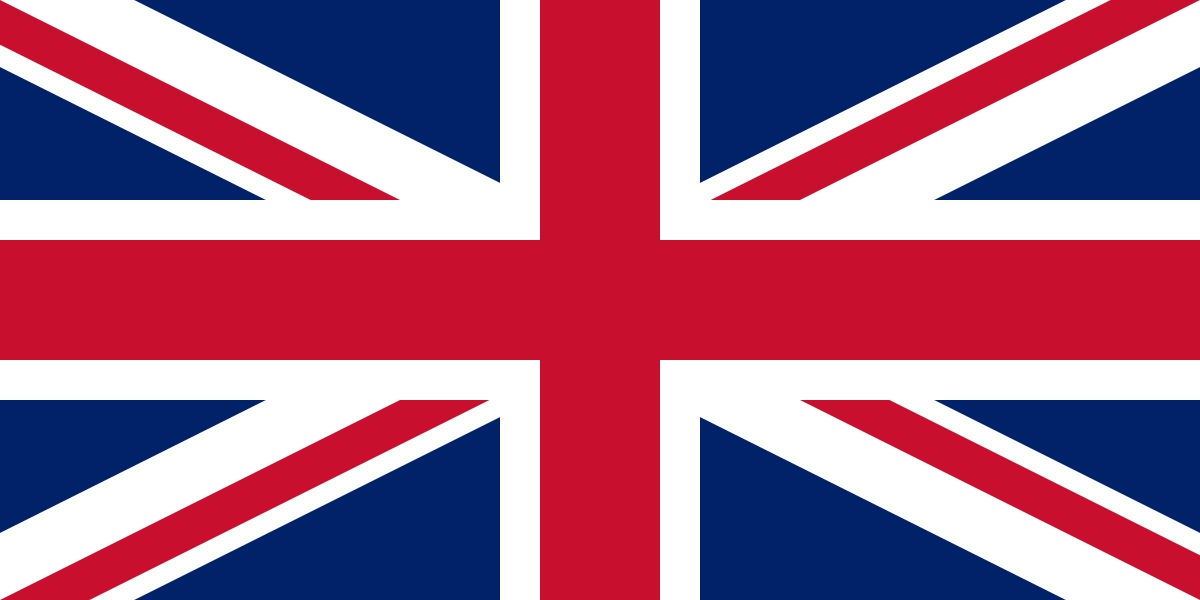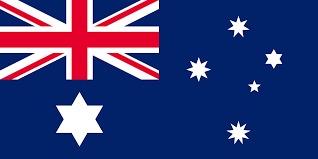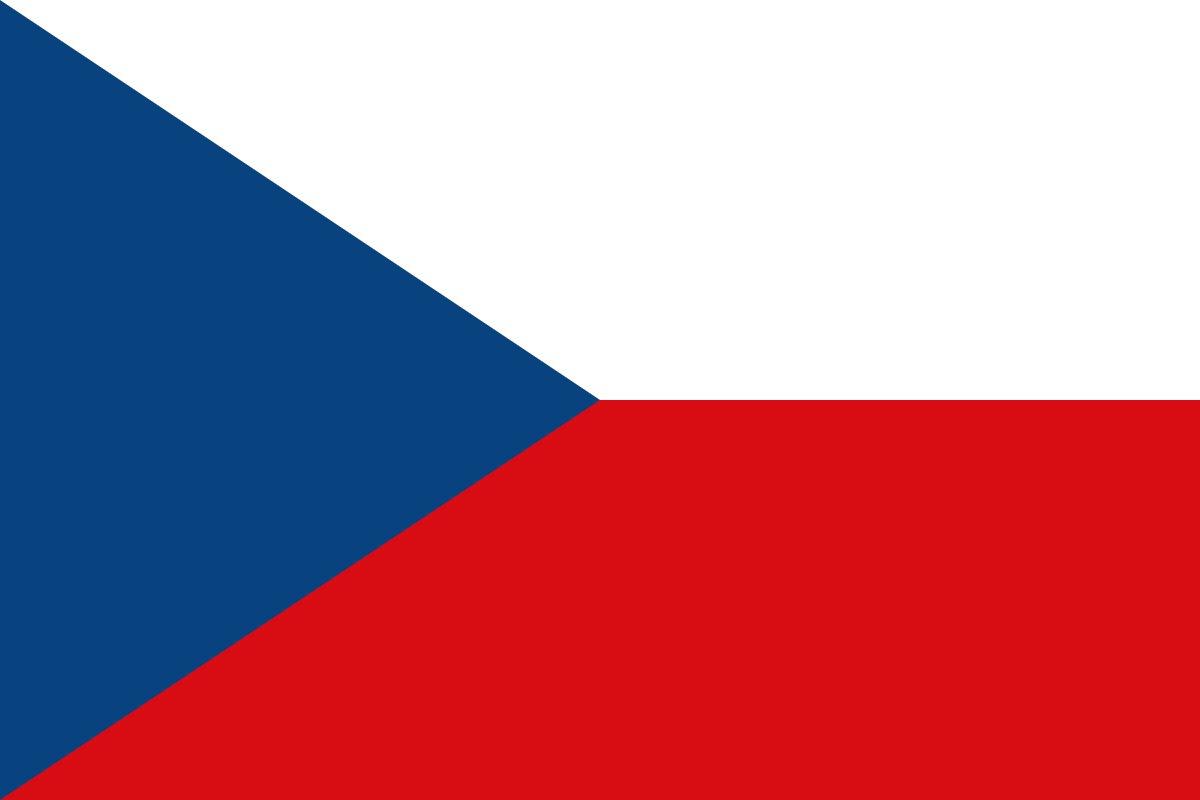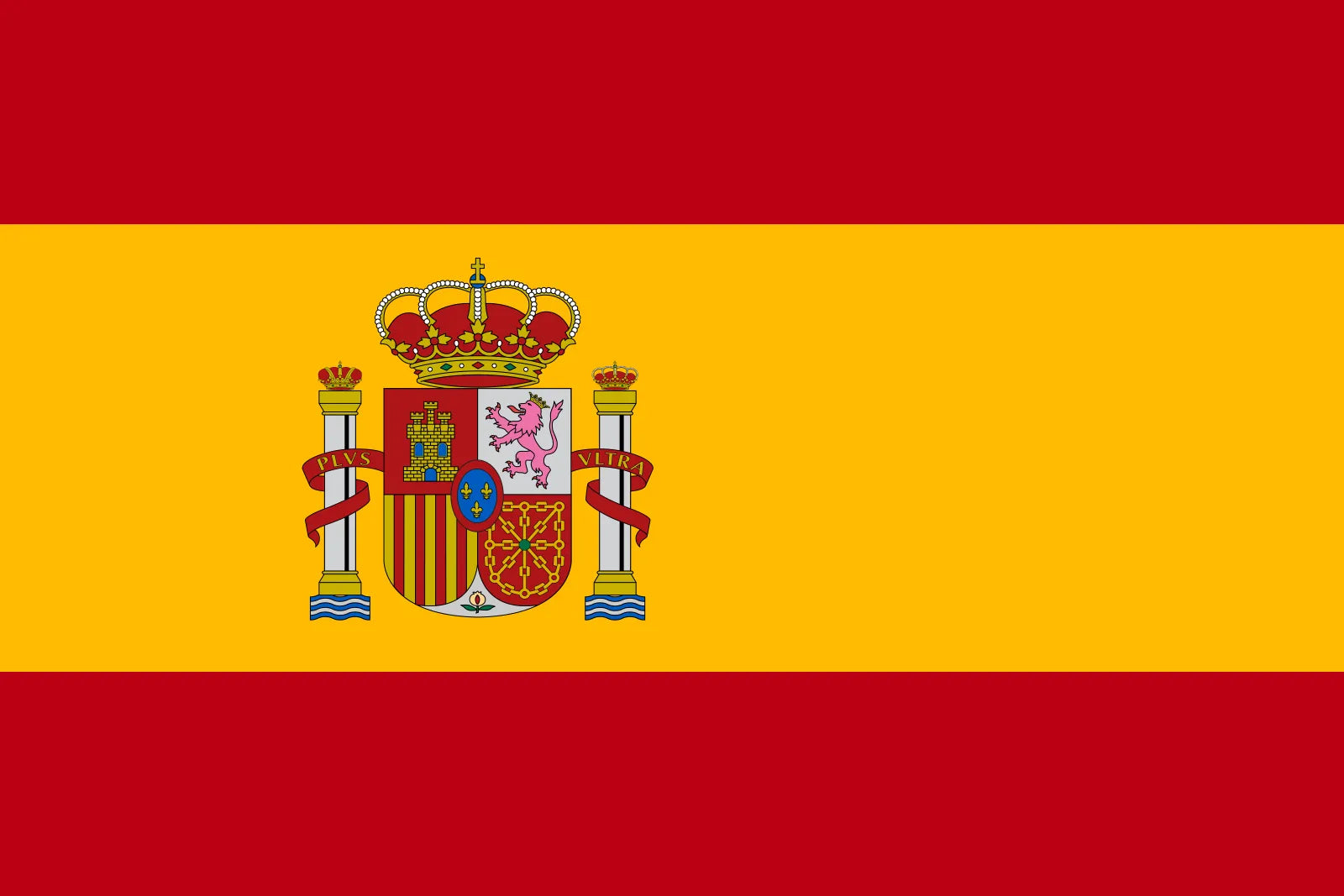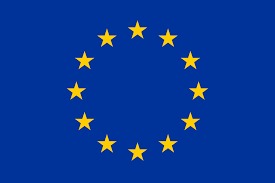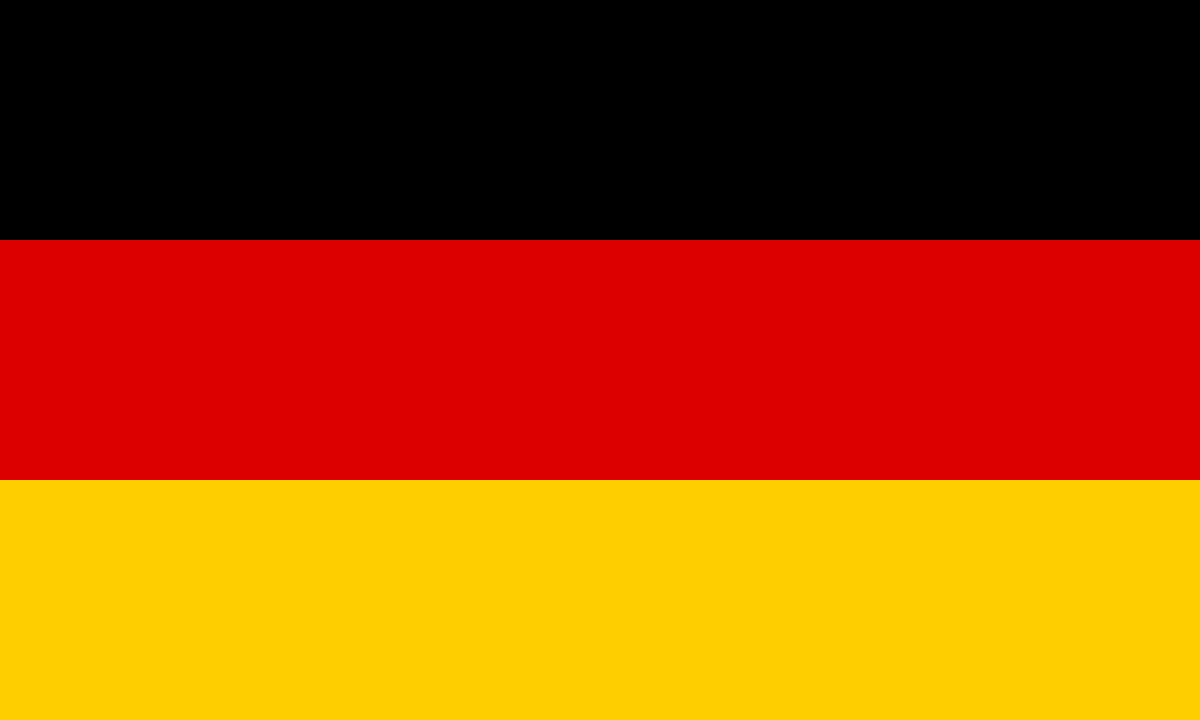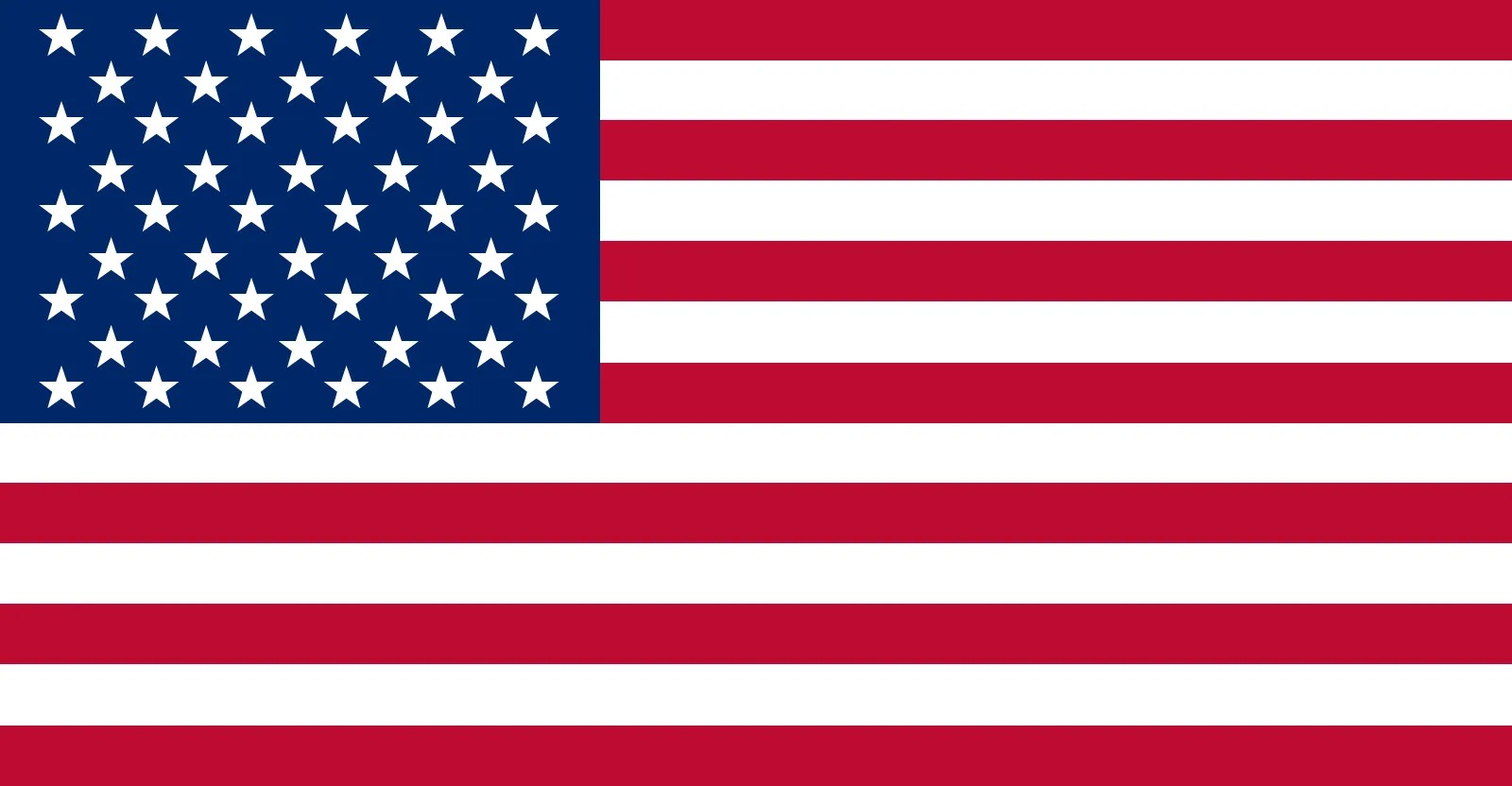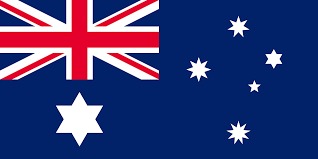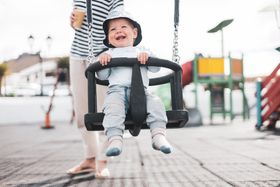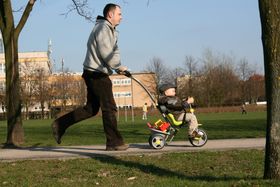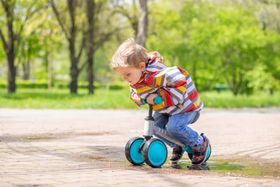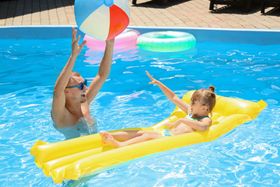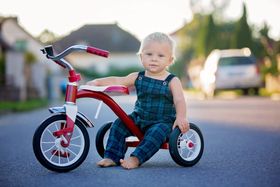Fine vs Gross Motor Skills: Help Your Toddler Develop Properly
Smart tips for you to help your toddler's motor skills development through everyday routine, outdoor activities, interactive games and toys.
Updated May 12, 2023
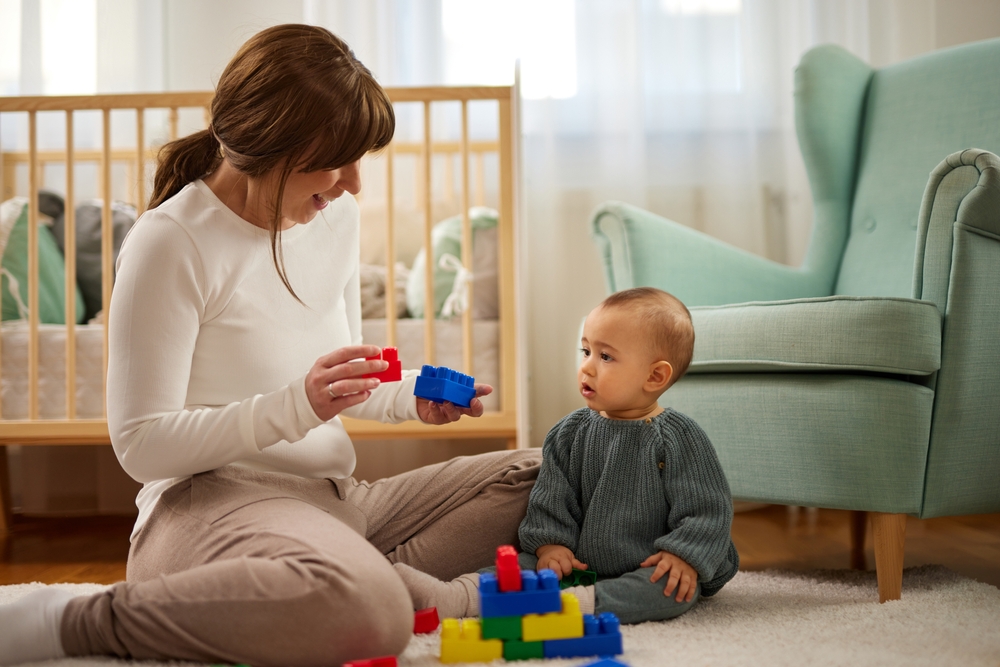
From their very first grip of your finger to their initial unsteady steps, your baby's motor skill journey is nothing short of miraculous. As they grow and explore their surroundings, they unlock a world of new skills, each one a building block for the next. These motor skills, a blend of muscle action and motor control, form the foundation of your child's physical and cognitive development.
They pave the way for self-confidence, balance, and hand-eye coordination, essentials in your child's journey of discovery. Let's embark on an exciting journey of discovery into the fascinating world of motor development in infants, where you'll learn about fine and gross motor skills and which fun activities can support your little one's progress.
Development of Fine Motor Skills
As children grow, they learn to control their bodies and develop muscle coordination, gradually mastering more precise movements known as fine motor skills. Between 3 and 6 months old, babies usually start to use their hands (though not necessarily their thumbs) to briefly hold toys. Thus, the process of baby motor skills development typically begins with the unfolding of fine motor skills. Generally, between 3 and 7 months old, babies start showing signs of these skills, like touching fingers together, reaching with both hands, or grasping small toys using both hands.
Did you know?
Your baby's motor skill development begins while they're still in the womb. From around 9 weeks, babies start to move their arms and legs, marking the beginning of their motor development journey.
While children grow at different rates, knowing the approximate timeline for specific milestones can help you gauge whether your child's development is on track.
Examples of fine motor skills include:
- Using pencils
- Opening and closing zippers
- Playing with Lego bricks
- Doing up buttons
- Threading beads
- Opening lunch boxes
Fine Motor Skills Activities for Toddlers
Help your toddler develop with these fun activities that build fine motor skills:
- Play-dough: Encourage your child to squeeze, stretch, and roll "snakes" with the dough. This activity enhances their finger and hand strength and coordination.
- Gardening: Digging and gardening provide an excellent opportunity for your toddler to work on their fine motor skills. Simple tasks like transferring seedlings into a garden or carrying a smaller plant to a new hole can make a big difference.
- Painting: This activity improves hand-eye coordination and manual dexterity. It also helps your child learn how to hold a brush and use it as a tool.
- Finger Foods: Offering your toddler finger foods and encouraging them to use a spoon or fork for eating can strengthen fine motor skills.
- Construction Toys: Playing with blocks or construction toys with interlocking parts can develop fine motor skills, as two hands are needed to put them together and take them apart again.
- Puzzles: A great tool to build hand-eye coordination and grow logic and spatial skills while being an entertaining and educational activity.
- Thread or Lace Items: Start with larger items like cut-up toilet roll holders or pool noodles and work your way down to smaller items like beads. This activity can help improve your child's focus and precision.
- Soap Crayons: A terrific way of combining splashy bath-time fun with fine motor skills development.
» Learn more about how to support your infant's development
Development of Gross Motor Skills
Before fine motor skills take hold, babies start developing gross motor skills. These are larger movements your baby makes, like waving their arms or kicking their legs. Gross motor milestones occur in a predictable pattern—children improve upper body control before they master lower body control. Each new skill your baby acquires builds upon a previous one, creating a fascinating baby motor skills timeline.
Examples of gross motor skills include:
- Sitting
- Crawling
- Standing
- Walking
- Kicking a ball
- Climbing stairs
Gross Motor Skills Activities for Toddlers
Help your toddler develop with these fun activities that build gross motor skills:
- Hopscotch: A simple way to practise balance, coordination, and jumping. You can easily draw a hopscotch grid or set one up with painter’s tape.
- Dancing: This activity builds balance and coordination, helping children become more aware of rhythm and movement.
- Stroller Trike: A stroller trike requires the use of larger muscle groups in the body to steer and pedal.
- Walk on Different Surfaces: Encourage your toddler to walk on varying surfaces, such as grass, sand, and wood chips. This will help them learn how to adjust their balance.
- Everyday Tasks: Get your toddler involved in everyday tasks like gardening or hanging clothes on the line.
- Park or Playground Visits: Regular visits to the park or playground can encourage your toddler to be adventurous.
- Ball Games: Throwing a large ball to your toddler and having them throw it back can improve hand-eye coordination and motor control.
» Wondering which stroller to get for your baby? Read our guide on stroller types
Aiding Your Toddler's Journey of Discovery
Remember, every child's development is a unique adventure filled with triumphs and challenges. As your little one explores their world, they'll naturally develop motor skills. You can play an active role in this journey with the right activities and tools, like the SmarTrike x Kelly Anna stroller trike.
This stroller trike grows with your child from 6 to 36 months, encouraging activity and aiding motor skill development. It’s an exciting, fun-filled way to nurture your child's physical and cognitive growth. If you ever have concerns about your child's motor development, don't hesitate to consult a health visitor. Your child’s journey is yours, too. Let's make every step count!
